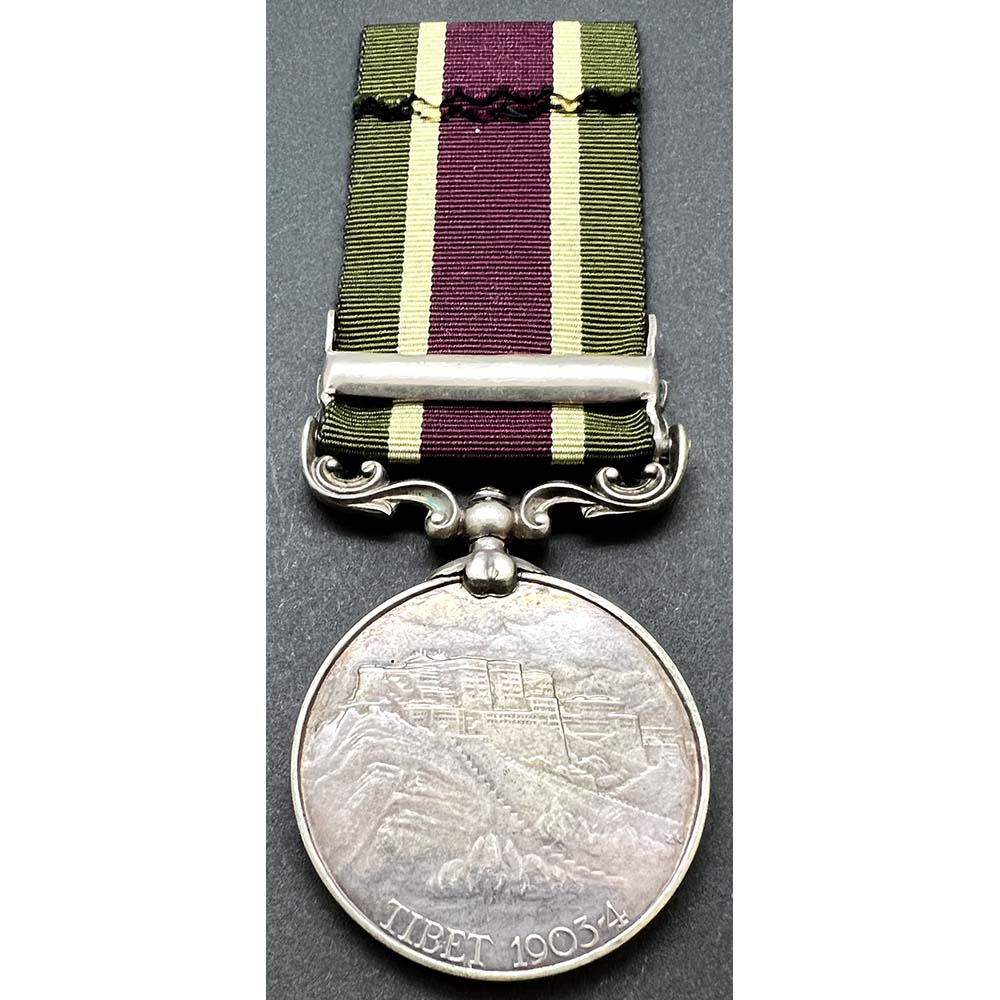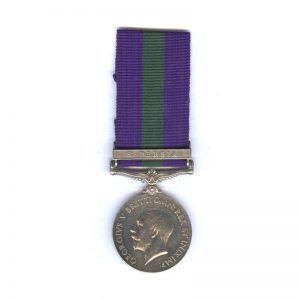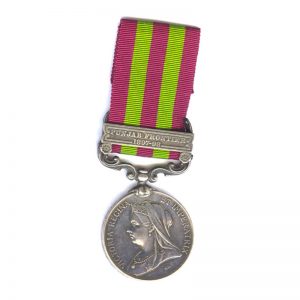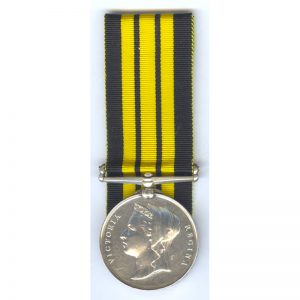Description
Tibet Medal 1903-4, bar Gyantse, 6911 Private C. Rowe, 1st Battalion Royal Fusiliers, the only British Infantry Regiment to earn this battle honour.
Officially engraved in fine running script: “6911 Pte C. Rowe 1st Bn Ryl Fuslrs”
Medal remains in excellent preserved condition.
Confirmed on the medal roll as entitled to the Medal as well as the clasp “Gyantse” for service in the expedition.
The Royal Fusiliers Collection, compiled by Jim Kelleher, the Royal Regiment of Fusiliers Archivist, notes “C. Rowe” as having also held service number 7149, and later in the 4th Battalion Royal Fusiliers during 1914.
The 4th Londons was a Territorial Force volunteer unit at the time since the 1908 reforms.
Appears to be former Militia No 9995 Charles Rowe, a Londoner from St Lukes, London, who had previously served in the 5th Royal Fusiliers Battalion of Militia, having attested on 12th October 1897. His Militia papers end on 8th December 1898, having been discharged to join the full time Royal Fusiliers.
The 1st Battalion Royal Fusiliers had the unusual honour of taking part in the British Expedition to Tibet under Sir Francis Younghusband.
They would go on to earn the rare “Gyantse” clasp to the medal for the gallant storming of the Gyantse Dzong.
A seemingly impenetrable mountain fortress deep into Tibet. Following a siege, a breach was finally made in the thick walls, and in went the Royal Fusiliers and the Gurkhas, as the present infantry, who charged through the breach under heavy fire.
The only Victoria Cross for the expedition was awarded during the storming of Gyantse to Lt John Duncan Grant, of the Gurkhas, along with an Indian Order of Merit to Havildar Pun, which should have been another VC but Indians were barred from the award until WW1.
The finest Tibetan troops defended the city, and they died trying to keep out the British, most chose a death in battle over having to give up their home to a “Foreign” invader.
Gyantse is remembered locally and around China as the “Hero City” for having held out for so long with inferior weaponry against a superior force.
Today a giant obelisk stands in front of the Gyantse Dzong, in memory of the brave Tibetan fighters lost in the storming.





